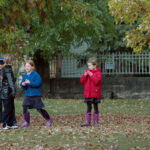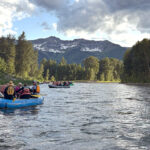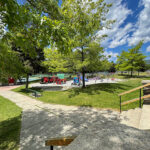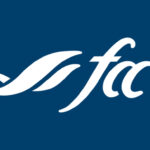Home »

CVSAR seeks donations after lack of budget consideration
As you may be aware, the provincial government laid out its budget plan last week. Unfortunately, there was no announcement of stable, long term funding for Search and Rescue. This follows years of work in the background to present options to government and a consultant’s report that is before government now.
One time funding was announced unexpectedly in 2016 and was extended for three years. That three years ends on March 31.

Historically, SAR stems from community disaster services during the Cold War. It has transitioned over the last 40-50 years to be a highly capable organization that is counted on by BCAS and the RCMP as well as local municipality emergency programs.
Columbia Valley Search and Rescue (CVSAR) provides basic Ground SAR, Incident Management, and technical response in Avalanche, Swiftwater, Rope, and Mountain Rescue. This requires specific equipment and training that necessitates stable, ongoing funding and support. CVSAR, as do other teams in the province, must spend time fundraising and applying for grants for basic operating costs.
Most grant programs do not support operational expenses and without funds from local municipalities or the province, paying for basic costs such as vehicle insurance and fuel becomes a challenge. This takes time away from training and preparing for potential responses.
When funds are limited, things like training and personal protective equipment get cut in order to cover the basics. Unlike fire protection, there is no requirement for local municipalities to provide this service. However, in some regions of B.C., a portion of property taxes are allocated to Search and Rescue.
In total, there are roughly 1,700 SAR activations annually conducted by approximately 2,500 volunteers. This is up about 1,000 incidents over the past 10 years. The average cost per rescue is between $5,000 and $8000 and although helicopters are often used and are expensive, technology has changed the game.
Now, GPS coordinates are often known and instead of using a large number of responders to locate and then rescue someone, a rescue can be conducted by fewer volunteers and a helicopter in a shorter time frame.
Ninety-five percent of subjects are located and rescued within 24 hours. As we saw locally this past summer, it can also take longer and dozens of volunteers to find a missing person in the backcountry.
One of our members closed his small business for three days to search for a missing person from Cranbrook. That is the level of commitment of our volunteers or as we prefer, unpaid professionals. Provincially, the value of volunteer time is estimated to be $30 to $50 million each year!
BCSARA (BC Search and Rescue Association) which represents the 80 SAR teams in B.C., is looking for $6-$6.5 million to support prevention efforts through AdventureSmart, maintain a peer support CISM (Critical Incident Stress Management) program, and to cover some of the operating costs for SAR teams. At a population of 4.8 million, that is $1.25-$1.35 per person.
This topic often leads to a discussion on charging the costs to those who are rescued. The consensus of SAR groups in B.C. is that this is a non-starter. The belief that a payment will be required leads to delays in notification of the emergency system and to people avoiding rescuers. It could also lead to subjects calling friends or family, which could put more people at risk.
The truth is, most people who are rescued or need Search and Rescue, take it upon themselves to fundraise or to make a donation. Those affected by a recent call, have donated over $7,000 because they recognized the work of dedicated and professional volunteers.
If you would like to show your support, contact your local municipal government, your MLA and the Minister for Public Safety and the Solicitor General. Donations can be made to Columbia Valley Search and Rescue through CanadaHelps.org or mailed to Box 2123 Invermere, V0A 1K0.
Columbia Valley Search and Rescue is part of the British Columbia Search and Rescue Association which is made up of 80 teams across the province. CVSAR’s primary response are includes the communities of Radium Hot Springs, Invermere, and Canal Flats as well as portions of the RDEK extending as far north as Spillimacheen and the Bugaboos, east to the Alberta border, and west to the height of land in the Purcells.
SAR in B.C. is fully volunteer and responds under direction of RCMP, BCAS, DND, or local authorities and is reimbursed for expenses incurred by Emergency Management BC. Operating expenses and equipment are paid for through donations and grant programs. BCSARA teams respond to approximately 1,700 SAR incidents annually and is comprised of 2,500 volunteers.
CVSAR can be found on Facebook, Twitter, and Instagram. Donations can be made through CanadaHelps.org or contact [email protected]
The organization’s annual general meeting is this coming Wednesday night (Feb. 27) and we will have an annual report available following that meeting.
Columbia Valley Search and Rescue







